commentary Commentary
Commentary: Climate action is our generation’s 1965
Winning our climate war is a moral and economic imperative. The green lining is that the new climate economy being birthed creates good jobs while saving our world, says CEO of PhilanthropyWorks Vivian Claire Liew.

(Photo: Unsplash/Mi Pham)
SINGAPORE: Prime Minister Lee Hsien Loong this National Day Rally publicly acknowledged climate change as an existential threat to Singapore – and aced it.
He unflinchingly positioned the threat dead-centre in the Singaporean psyche – and mentioned housing price risks in the East Coast and waterfront areas. Yet, he also managed to sound upbeat and forward-looking.
This marks the defining moment for Singapore’s climate war. It is a clarion call for us to understand the climate impact reverberating through our society, economy and geopolitics. Singapore’s Total Defence strategy surely welcomes its missing seventh pillar.
WHY WE MUST
At “just” 1.1 degrees Celsius increase in warming, climate change will cost millions of lives and homes, lead to acidic oceans challenging sealife, droughts, floods, heatwaves ravaging crop yields, as well as mosquitoes reproducing faster and propagating Zika, dengue and other pandemics.
READ: Commentary: Climate change in Singapore and what the future brings
READ: Commentary: As ice caps melt, Singapore a hot spot for sea-level rise
Our Sovereign Wealth Fund (SWF) climate analysis last year, recommended 4 degrees Celsius warming as the baseline planning parameter going forward, different from the 1.5 to 2 degrees Celsius future discussed then.
It was a tough call that endangered our credibility, but the United Nations Intergovernmental Panel on Climate Change (IPCC) vindicated our prediction months later, leveraging 200 scientists over two years.
Singapore’s economy has a carbon bent. We emitted 50.9 million tonnes of greenhouse gases in 2014, 27th highest among 142 countries.
Studies have shown if everyone lived like Singaporeans, the amount of resources the Earth produces in 2018 would have been used up by Apr 2018.
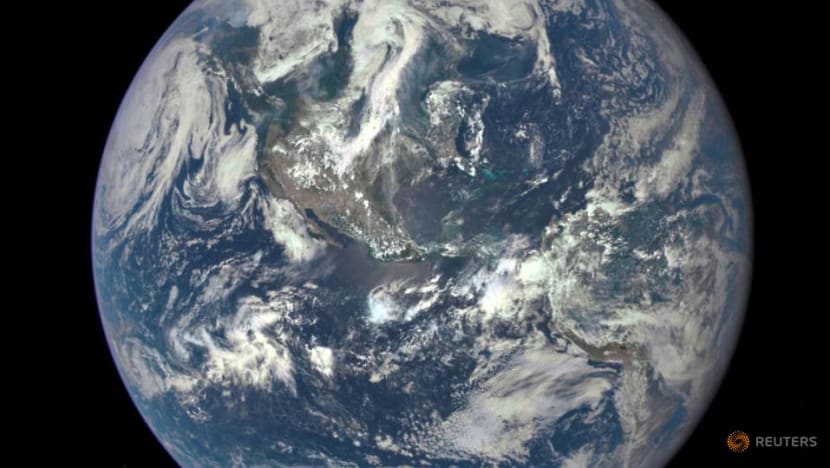
The paradigm shift required to save our homeland and the world, offers exciting opportunities in green growth. Global heating will transform the destinies of most countries and companies, on par with Artificial Intelligence.
YES WE CAN
PM Lee declared that everything must “bend at the knee” to protect our homeland, and that we do not want our descendants ashamed of us.
Our implemented mitigation measures already ensure that we overachieve our promised Nationally Determined Contributions of reducing emissions intensity by 36 per cent from 2005 levels by 2030. Kudos to our civil servants.
With PM Lee affirming that “Singapore must do its part”, will we raise our ambition? Forty-nine countries, representing 40 per cent of global greenhouse gas emissions, have capped emissions, while 10 countries will reach net zero by 2050.
Optimal mitigation requires the Government, corporates and all individuals doing our utmost. Collaborating with the global community to constrain emissions while protecting carbon-rich rainforests is crucial.
A circular economy can almost halve global industry emissions by 2050. Sustainable finance will mushroom, from SWFs and other smart investors divesting fossil fuels and others with carbon exposure, to protect financial returns.
READ: Commentary: We are on the cusp of a plastic recycling revolution
READ: ‘Calamity may come’ if Singapore doesn’t take care of its coastlines now: Masagos Zulkifli
Singapore as a global financial hub should accelerate efforts to leverage and support the essential global transition to a clean, decarbonised economy. Investors and companies that protect the planet, while catering to lives worth living, will be rewarded.
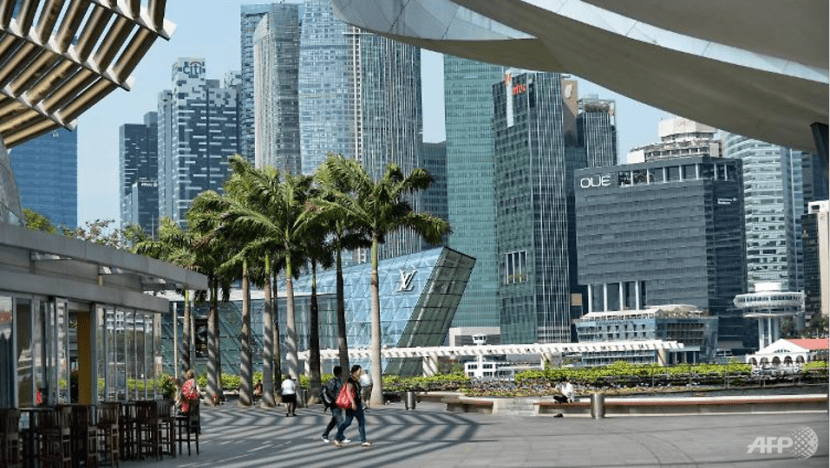
An Asian SWF sustainability executive told me they plan to become carbon-neutral next year, and recommended each corporate devise a carbon-neutral strategy. Climate literacy will support boards in understanding the new climate economy, as fundamental to fiduciary duty.
The carbon intensity of industries, and the carbon differential within sectors, will shape the competitive landscape and economy.
The top 10 per cent of households in rich countries such as the US, consumed four to five times more carbon on average compared to the bottom half, in Oxfam’s analysis. That bears consideration in our tax policy.
I have six suggestions on how to re-engineer Singapore for that greener future.
1. HOW ABOUT CHEAPER COES TO DRIVE ELECTRIC MOBILITY?
A car is our largest carbon purchase, if one flies less than one Singapore-London return trip annually. Cheaper Electric Vehicles (EVs), with well-distributed and bookable charging infrastructure, can equalise the playing field. Though EVs here burn fossil fuels and are not zero emission, they remain a cleaner alternative.
READ: Commentary: Where are all the electric vehicle charging points?
Property developers that support our national imperative, could incorporate charging spots in their buildings. We can reciprocate with more Greenmark points.
2. HOW ABOUT CHEAPER, MORE RELIABLE PUBLIC TRANSPORT?
The wider the differential between holistic public transportation costs and private car ownership, the more people would lower their carbon footprint. Our Smart Nation prowess can support by improving the accuracy of bus arrival predictions and journey duration.
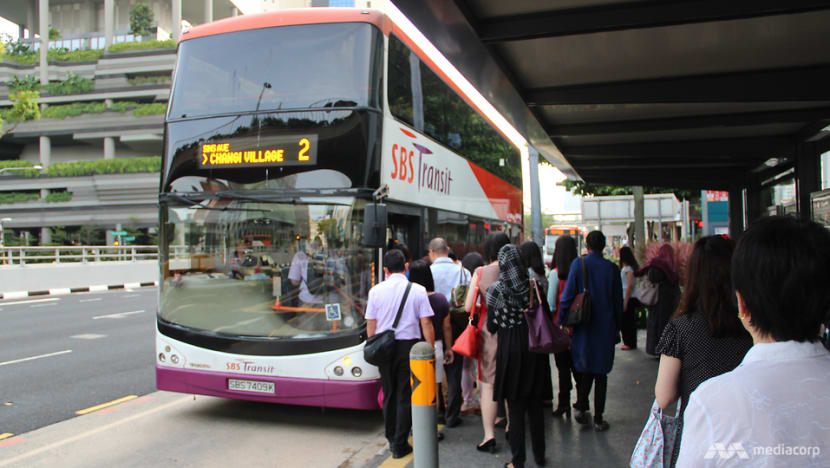
Design thinking, with better traffic light algorithms, could rebalance the time cost, heat stress and inconvenience borne by pedestrians and public transit users.
3. LET’S STOP WASTING FOOD
We can all do this, by buying the right portions and storing it well. Supermarkets should sell perishables in small portions so that consumers do not overpurchase.
The Government can consider policies such as France’s law banning supermarkets from dumping food, a Good Samaritan Law shielding F&B donors from liability, and research into cold chain management best-practices.
4. MORE ENERGY-EFFICIENT BUILDINGS
Construction is one of the biggest emitters. Architects and property developers are hence key partners in Singapore’s climate war.
Given the gap between Singapore’s carbon tax and IPCC’s recommendation, judicious boards and management may choose to future-proof their business models amid different global carbon tax scenarios, but it’s worth reviewing our carbon tax rate.
A key test of Singapore’s climate conviction, is frigid office temperatures in our tropical country.
Does our involuntary chill stem from cheap, poorly-functioning air-conditioners that cannot circulate cold air around the entire floor properly? So they blast frigid air to ensure it remains cold when it reaches the furthest person? Whatever it is, our failure to have sane temperatures strains the credibility of our climate change fight.
Solar panel windows can help address our lack of surface area for installations, while reducing the buildings’ net carbon footprint. Otherwise, we should use at least insulated windows to minimise cooling needed.
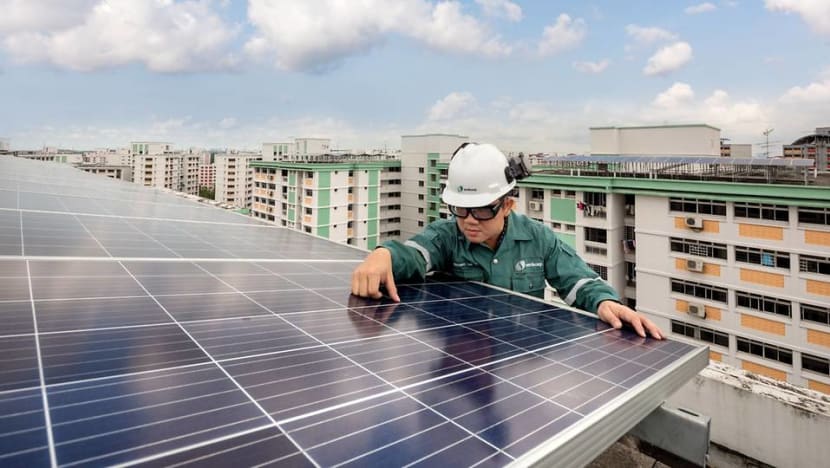
The future of energy is decarbonised, distributed and digital. Locating power generators closer to users reduces the significant 30 per cent energy transmission loss. With solar power offering deployment at various capacities, is this not viable for Singapore?
5. EMBRACE RESPONSIBLE CONSUMPTION
Production and shipping to Singapore incur carbon costs, every step of the way. Those who shop as if there is no tomorrow will indeed lead us to having no tomorrow.
Consuming fewer, quality and durable products would reduce the strain on our Earth. Singapore’s average per capita emission was about double that of small, rich nations such as Denmark and Switzerland.
Wildfires are ravaging our world. While we are not the ones burning the Amazon, or abetting farmers, our clamour for Brazilian pork, beef and soy effectively endorses the burning. Platform giants could help with filters for the relative carbon intensity of each product type.
6. CHOOSE FUEL-EFFICIENT APPLIANCES
These often help you save money over its lifecycle. The National Environment Agency's app has a great fuel-efficiency function for key energy sinks. Corporates could support by sourcing quality, energy-efficient appliances.
CALL TO ACTION
Concerned for us? Discuss global heating with your friends. Discover your carbon footprint, and support our future at the SG Climate Rally in September.
READ: Want to do more to fight climate change? Cut down on driving, buying stuff and eating meat
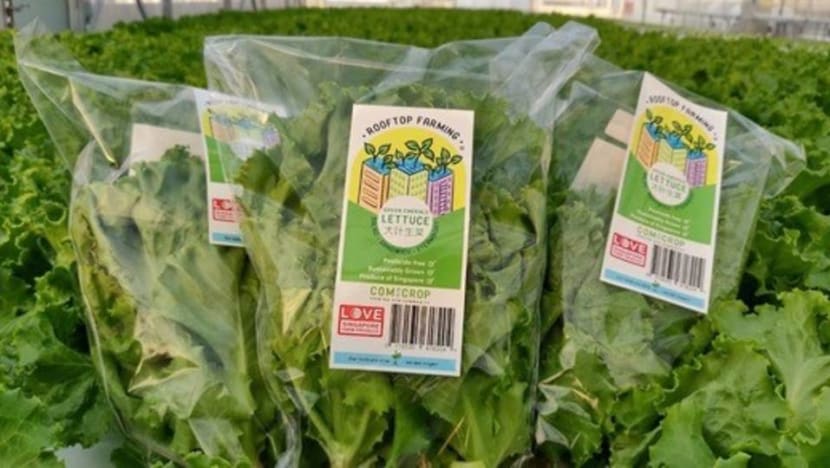
Global heating strikes at humanity’s Achilles’ heel. The top risk to our planet for this generation carries implications that make it painful to understand and address, turbocharged by the tragedy of the commons.
Yet, this is our watch. Whether the scales fell from our eyes at or before NDR, we must act now to constrain carbon emissions. How can we sell our next generation into carbon debt?
So run a carbon-neutral company, fly less, and eat less (meat)? The choice is yours, and your action matters. On that, hangs the fate of Singapore and our world.
Vivian Claire Liew is a global sustainability expert and CEO of PhilanthropyWorks, which advises leading investors and corporates on the new climate economy.












